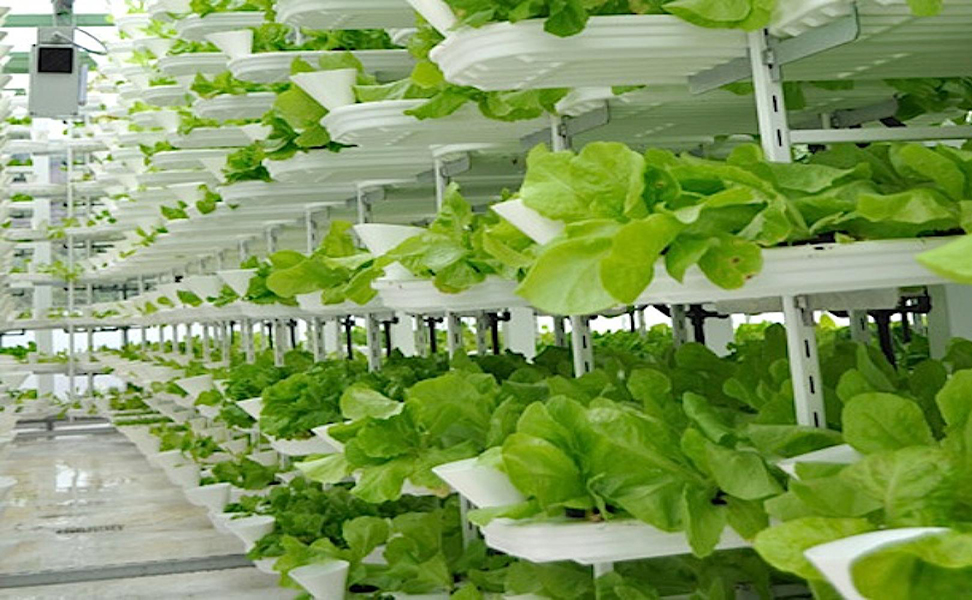
Robohub.org
Vertical farms profiled on CBS Morning News

CBS News profiled a New Jersey vertical farm providing baby kale, arugula, spinach and romaine to nearby Newark and NYC groceries. They boast 130 times more productivity, 95% less water and no pesticides versus field farms. And they harvest 24 times a year, rain, snow or shine.
The pros for vertical farming are obvious: 95% less water, no pesticides, year-around production, local delivery, almost no spoilage, true organic veggies. But there are an equal number of cons: high energy costs, lack of automation and robotics to reduce costs, high initial facility cost, steep up-front facility and fixtures cost with consequent premium selling prices limiting the number of buyers willing to pay that premium.
Here is the informative video from CBS This Morning which describes the Aerofarm vertical farm operation in New Jersey:
Aerofarms is pioneering this type of farming, applying for patents and developing the science of lighting, aeroponics and all the other intricacies in growing these types of greens. Thus far they haven’t spent much time researching and testing the latest robotics and automation systems being offered but they plan to do so very soon to lower their costs and increase their productivity.
The Winter 2016 issue, the magazine of Carnegie Mellon University’s School of Computer Science, described how CMU’s FarmView, a research project developing a system of sensing, robotics and artificial intelligence technologies to improve crop management practices through automated, data-driven decision tools, intends to make a difference in food production worldwide.
“One of our goals is to develop inexpensive robotic systems that small- to medium-scale growers can afford to implement,” said Stephen Nuske, a systems scientist for the project.
“We need a paradigm shift in how we grow food. The path we are on is unsustainable.” said Research Professor Sanjiv Singh.
Projects similar to CMU’s FarmView are being sponsored by governments and farming associations worldwide with a large segment focusing on productivity enhancements using AI and robotics for indoor and vertical farming.
Here’s another video to watch if you want more details about the technology and chemistry involved:
A new report by Tractica, a Colorado research firm, forecasts that shipments of agricultural robots will increase significantly in the years ahead, rising from 32,000 units in 2016 to 594,000 units annually in 2024, by which time the market is expected to reach $74.1 billion in annual revenue.
Robotics companies are keenly focused on the agricultural market opportunity just as farming executives are interested in what those robotics companies can provide them. The Tractica report examined 178 industry participants – a particularly large number – who are developing and launching robotic systems to address the need for more automation to improve efficiency, reduce costs, and address labor concerns in the agriculture market. There is a section on indoor and vertical farming.
Tractica’s report, “Agricultural Robots”, developed in collaboration with The Robot Report, examines global market trends for agricultural robots and provides 10-year market sizing and forecasts for agricultural robot shipments and revenue during the period from 2015 through 2024. The study also includes 178 profiles of industry players in the agricultural robot market.
tags: Environment-Agriculture, opinion, Robotics technology, Service Professional Field Robotics Agriculture



